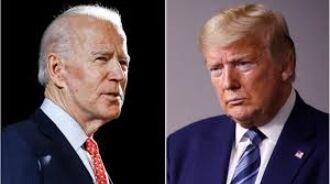Era of the wildcard

As the still ongoing US elections inch closer to a climatic end, it is safe to say that there were plenty of surprises in what was expected to be the strangest and most important US election in recent history. For one, it was reported that this election saw the largest turnout of voters in the last 120 years. On a related note, this election has turned out a lot closer than most people had speculated. While Biden may be currently pitched to gain the White House, he may also be the only Democratic President to take office and not have full control of Congress since the 19th century. One of the common factors that are typically blamed for creating such election altering tight spaces in voting is the presence of third party candidates.
To clarify, the US does not exactly have rules against a multi-party system. Indeed, there is ample indication that the founding fathers of America largely favoured a multi-party system. Both Washington and his successor John Adams warned against the terrible dangers of hyper-partisanship, of splitting a nation between two contesting parties. Yet despite their warnings, it is a fact that except George Washington, no independent candidate has ever become the President of the United States. And yet, partisanship cannot be defined as one straight line in the US context. For a long time in US history, partisanship on two-party lines was criticised on the basis that it didn't mean much as the two parties were too similar to offer meaningful choice as both leaned towards being a loose, big tent coalition of various smaller parties. At some point in the 20th century, America's two-party system and 'winner take all' approach was even appreciated in favour of the muddled politics of Europe. Then came the 1960s where the two major parties were subdivided into something close to four parties with liberal Democrats, conservative Democrats, liberal Republicans and conservative Republicans representing the new political divide. The system at this point was still one that allowed for different coalitions and partisanship was not yet a major factor. It is hard to say with certainty as to when American partisanship became a true divisive force that is still afflicting the nation in the 21st century. Some hold that it was the divide of the post-civil rights movement years that changed a process of compromise and alignment-based politics to a zero-sum game that divided the two parties on lines of national identity and culture. It is this battle that America continues to fight. Such hyper-partisanship has meant that bi-partisan decisions are rare and that the US SC has to weigh in more and more frequently as time goes by. Given the characteristics of the US SC, this makes the fight to pack the SC even more desperate, feeding into the intense partisan divide.
The entry of Trump challenged one of the great so-called strengths of the US two-party system. It was assumed that this system meant that fringe, extremist and outsider elements would not be able to take centre stage in these mainstream parties. Trump not only came in as an outsider, but he also redefined his mainstream as the new Republican mainstream. At least for now, this meant that Trump is the Republican Party and the Republican Party is Trump. As many have noted, Trump opened up America's insular political scene to outsiders, for better or worse. As this election has shown, a new wave of independent outside candidates is smelling an opportunity for the fringe to become mainstream. Amongst these independents this year was the surprising appearance of Kanye West as a Presidential candidate. It is important to emphasise just how unusual this is. Not even prominent third parties like the Green Peace Party always manage to make it on to the ballot. And yet Kanye somehow managed to get on the ballot in 12 states in a shoddy eleventh-hour camp that is said to have been based on USD 10 million he spent on firms to run signature campaigns for him to appear on the ballot. Fundamentally, there was an awareness that he isn't exactly serious. Kanye had no policy, no experience and no real leg work to gather support. Indeed, aside from a handful of tweets and a failed election rally, there wasn't much to indicate he was running.
Obviously, he had made his intentions regarding a possible 2024 campaign clear through various mediums. On a recent Joe Rogan podcast, Kanye stated he had conceived the campaign five years ago in the shower as God showed him a vision of him becoming 'the leader of the free world'. His 'divine right' to rule aside, in all seriousness, Kanye West did actually manage to get around 60,000 votes which may allow him to make a serious bid in 2024. And while he has been conspiratorially labelled as a Republican attempt to wean away votes from Biden, the truth may be simpler. The partisan 'swamp' of America induces voter fatigue and causes a lashback as people look towards political outsiders for change, any change. This is what allowed Donald Trump and possibly Kanye West in the future to slip into the mainstream, as antidotes to American politics. Whether the entry of such wild-card candidates is a good sign for American politics is entirely up for debate.



